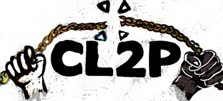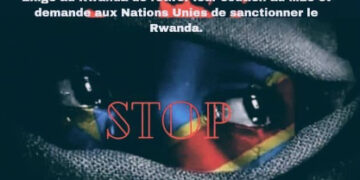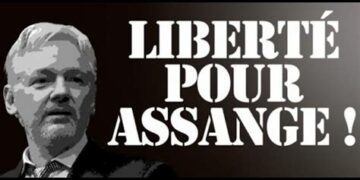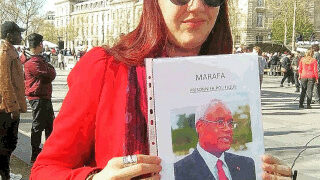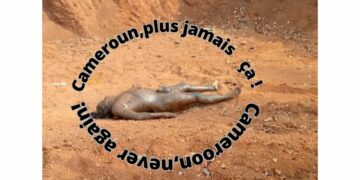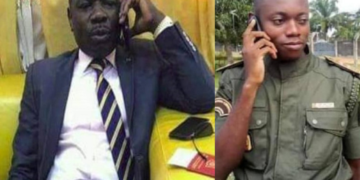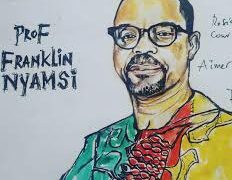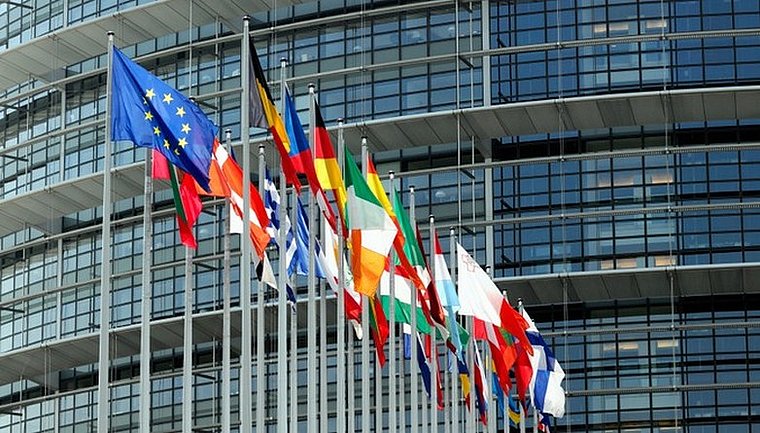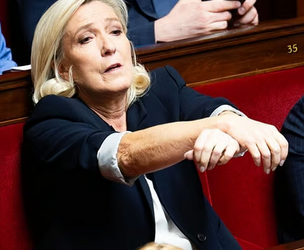CAMEROUN: LE PARLEMENT DE L’UNION EUROPÉENNE DEMANDE LA LIBÉRATION DU PRINCIPAL OPPOSANT SÉQUESTRÉ MAURICE KAMTO, SES CAMARADES POLITIQUES ET LES 200 CO-DÉTENUS
Résolution du Parlement européen sur le Cameroun.
Le Parlement européen,
– vu la déclaration du Haut représentant Mogherini sur la détérioration de la situation politique et de la sécurité au Cameroun du 5 mars 2019 et la déclaration du porte-parole de la Haute représentante sur la situation au Cameroun du 31 janvier 2019,
– vu la déclaration des experts des Nations unies sur la répression des manifestations du 11 décembre 2018,
– vu la déclaration de la Commission africaine des droits de l’homme et des peuples sur le statut des droits de l’homme au Cameroun du 6 mars 2019,
– vu la loi antiterroriste du Cameroun de 2014,
– vu la déclaration universelle des droits de l’homme,
– vu le pacte international relatif aux droits civils et politiques de 1966,
– vu l’accord de Cotonou, en particulier son article 96,
– vu la Charte africaine des droits de l’homme et des peuples de 1981,
– vu la constitution du Cameroun,
– vu les articles 135, paragraphe 5, et 123, paragraphe 4 de son règlement,
considérant que la constitution du Cameroun a été modifiée en 2008 afin de supprimer les limites de mandat; considérant que des élections présidentielles ont eu lieu au Cameroun le 7 octobre 2018;
Considérant que le président sortant Paul Biya, au pouvoir depuis 1982, a été déclaré vainqueur des élections; alors que c’est son septième mandat;
Considérant que les élections ont été entachées d’irrégularités et de manipulations des résultats, comme le relève notamment le rapport du département d’État américain du 13 mars 2018;
considérant que les partisans et alliés du parti de l’opposition, le Mouvement de la Renaissance camerounaise (MRC), dirigé par Maurice Kamto, ont manifesté à Douala, Yaoundé, Dschang, Bafoussam et Bafang;
Considérant que les forces de sécurité de l’État ont réprimé les manifestations avec une force disproportionnée, notamment des gaz lacrymogènes et des balles en caoutchouc;
considérant qu’environ 200 personnes, dont Maurice Kamto et d’autres dirigeants de l’opposition, ont été arrêtées arbitrairement en janvier et placées en détention sans avoir immédiatement accès à un avocat;
Considérant que ces partisans de l’opposition, dont le dirigeant, ont été inculpés de crimes comprenant insurrection, hostilités contre la patrie, rébellion, détérioration des avoirs publics ou classés, outrage au président de la République et rassemblements à caractère politique;
Attendu que ces membres et sympathisants de l’opposition sont jugés par des tribunaux militaires et passibles de la peine de mort;
Considérant que l’Union européenne s’oppose à la peine de mort, dans tous les cas et sans exception;
considérant que la communauté anglophone est confrontée à une discrimination structurelle et croissante dans les régions du nord-ouest et du sud-ouest;
considérant que les forces de sécurité camerounaises ont violemment réprimé les manifestations et les manifestations séparatistes de la communauté anglophone en 2017;
considérant que la situation s’est rapidement détériorée et que des violences se sont abattues dans les deux régions, notamment des enlèvements, des pillages, une force aveugle, des destructions de villages, des meurtres commis par des groupes armés et des exécutions extrajudiciaires perpétrées par des forces gouvernementales, notamment des soldats camerounais, des gendarmes et des membres du bataillon d’intervention rapide;
considérant que cela a entraîné des centaines de milliers de personnes déplacées à l’intérieur du pays;
considérant que le conflit en cours, y compris l’enlèvement d’enfants, empêche l’accès aux services de base dans le nord-ouest et le sud-ouest, y compris les soins de santé et l’éducation;
considérant que le gouvernement camerounais n’a pas autorisé le bureau des droits de l’homme des Nations unies à se rendre dans les régions touchées;
considérant que les États-Unis ont suspendu leur assistance militaire au Cameroun en réponse aux violations persistantes des droits de l’homme et des droits civils;
considérant que le Cameroun est confronté à de graves violations des droits de l’homme et du droit international humanitaire commises par Boko Haram dans la région de l’Extrême-Nord;
considérant que le Cameroun est confronté à une crise humanitaire touchant plus de 600 000 personnes déplacées à l’intérieur du pays, environ 350 000 réfugiés à la suite de conflits voisins au Nigéria et en République centrafricaine et à 1,9 million de personnes menacées d’insécurité alimentaire dans le pays;
Déplore la violence et la discrimination à l’encontre de la communauté anglophone;
Se déclare particulièrement préoccupé par les allégations selon lesquelles les forces gouvernementales seraient responsables d’homicides, de recours excessif à la force et de tortures;
Demande au gouvernement de prendre immédiatement toutes les mesures nécessaires pour mettre fin à la violence et à l’impunité dans le pays;
Constate avec inquiétude la détérioration de la situation des personnes déplacées dans leur propre pays;
Demande en particulier que le gouvernement du Cameroun et la communauté internationale prennent des mesures immédiates pour protéger la sécurité et l’accès sans entrave aux soins de santé et à l’éducation des enfants;
Regrette profondément le climat répressif qui règne au Cameroun face aux partis d’opposition et à leurs partisans, à la société civile et aux mouvements de citoyens;
Condamne l’arrestation et la détention de Maurice Kamto et d’autres manifestants pacifiques;
Rappelle que les civils ne devraient pas être jugés par des tribunaux militaires;
Demande aux autorités camerounaises de libérer immédiatement Maurice Kamto et les manifestants, ainsi que toutes les accusations à caractère politique;
Demande en outre au gouvernement camerounais de mettre fin à tout harcèlement et toute intimidation des militants politiques, y compris l’interdiction des rassemblements politiques pacifiques, des manifestations et des manifestations, et de prendre des mesures pour réprimer les discours haineux;
Rappelle que la peine de mort n’a pas été utilisée au Cameroun depuis 1997;
Constate qu’il s’agit d’un jalon dans la voie de l’abolition totale du pays; réitère l’opposition absolue de l’Union européenne à la peine de mort et demande au gouvernement camerounais de confirmer qu’il ne demandera pas la peine de mort pour les militants politiques et les manifestants;
Exprime sa préoccupation devant le fait que la loi antiterroriste de 2014 est utilisée abusivement pour restreindre les rassemblements pacifiques;
demande au gouvernement de prendre d’urgence des mesures pour que ces droits soient protégés pour tous les Camerounais, notamment en levant l’interdiction des manifestations dans les MRC et en lançant un réexamen des dispositions de la loi antiterroriste;
Rappelle qu’une société civile dynamique et indépendante est essentielle pour faire respecter les droits de l’homme et la primauté du droit; exprime sa préoccupation devant l’interdiction des activités du Consortium de la société civile anglophone du Cameroun;
Demande instamment au gouvernement de lever l’interdiction et de garantir un espace ouvert dans lequel la société civile peut opérer;
condamne en outre, à cet égard, la criminalisation de l’homosexualité au Cameroun et demande instamment au gouvernement de garantir aux organisations de la société civile LGBTI un espace leur permettant de mener leurs activités en toute sécurité;
Demande instamment au gouvernement camerounais de construire une démocratie authentique, représentative et dynamique;
Demande par conséquent au gouvernement de réunir tous les acteurs politiques en vue d’un réexamen consensuel du système électoral, dans le but de garantir un processus électoral libre, transparent et crédible;
demande instamment que ce processus ait lieu avant de nouvelles élections, afin de promouvoir la paix et d’éviter les crises postélectorales;
Exprime sa préoccupation devant le refus d’accès des Nations unies aux régions du nord-ouest et du sud-ouest et invite le gouvernement camerounais à garantir un accès immédiat et sans restriction;
Appuie les appels lancés par la communauté internationale au gouvernement pour qu’il ouvre des enquêtes indépendantes sur les informations faisant état d’atteintes aux droits humains commises par les forces de l’État;
Prie instamment le gouvernement de coopérer étroitement avec les Nations unies à cet égard;
Demande en outre instamment au gouvernement camerounais d’organiser de toute urgence un dialogue inclusif en vue d’une solution pacifique et durable à la crise dans les régions anglophones;
Prend note de la décision des États-Unis de réduire leur assistance militaire au Cameroun en raison d’allégations crédibles d’allégations de violations flagrantes des droits de l’homme par les forces de sécurité;
demande à la Commission européenne de procéder à une évaluation du soutien de l’Union européenne aux services de sécurité à cet égard et de faire rapport au Parlement européen;
Charge son Président de transmettre la présente résolution au Conseil, à la Commission, à la vice-présidente de la Commission européenne / haute représentante de l’Union pour les affaires étrangères et la politique de sécurité, au représentant spécial de l’UE pour les droits de l’homme, au Conseil ACP-UE, aux institutions de l’Union africaine, le gouvernement et le parlement du Cameroun.
[spacer style="1"]
European Parliament resolution on Cameroon
(2019/2691(RSP))
The European Parliament,
– having regard to the statement of 7 March 2019 by the Chair of its Subcommittee on Human Rights, Antonio Panzeri, on the situation in Cameroon,
– having regard to the declaration of 5 March 2019 by High Representative Federica Mogherini on the deteriorating political and security situation in Cameroon,
– having regard to the various statements by the Spokesperson of the High Representative on the situation in Cameroon, in particular that of 31 January 2019,
– having regard to the Preliminary Statement of 9 October 2018 of the African Union Election Observation Mission to the 2018 presidential elections in Cameroon,
– having regard to the statement of 11 December 2018 by UN experts on the crackdown on protests,
– having regard to the statement of 6 March 2019 of the African Commission on Human and Peoples’ Rights on the human rights situation in Cameroon,
– having regard to Cameroon’s anti-terrorism law of 2014,
– having regard to the Universal Declaration of Human Rights,
– having regard to the International Covenant on Civil and Political Rights of 1966,
– having regard to the ACP-EU Partnership Agreement (‘Cotonou Agreement’),
– having regard to the African Charter on Human and Peoples’ Rights of 1981, which Cameroon has ratified,
– having regard to the Constitution of the Republic of Cameroon,
– having regard to Rules 135(5) and 123(4) of its Rules of Procedure,
A. whereas Cameroon faces a number of simultaneous political and security challenges, including threats from Boko Haram in its Far North region, cross-border threats along its eastern border with the Central African Republic, and an internal armed separatist rebellion in its Anglophone Northwest and Southwest regions;
B. whereas presidential elections were held in Cameroon on 7 October 2018; whereas these elections were marked by allegations of fraud and the reporting of irregularities; whereas President Paul Biya has been in power since 1982; whereas the constitution of Cameroon was amended in 2008 to remove term limits;
C. whereas supporters and allies of the Cameroon Renaissance Movement (MRC) opposition party led by Maurice Kamto organised protests in Douala, Yaoundé, Dshang, Bafoussam and Bafang; whereas state security forces used disproportionate force, including tear gas and rubber bullets, to suppress these protests;
D. whereas around 200 people, including Maurice Kamto and other opposition leaders, were arbitrarily arrested in January 2019 and detained without immediate access to a lawyer; whereas the crimes with which these opposition supporters and their leader have been charged include insurrection, hostilities against the fatherland, rebellion, destruction of public buildings and goods, contempt of the President of the Republic and gatherings of a political nature;
E. whereas on 9 April 2019 the Court of Appeal in Cameroon’s Central Region confirmed the decision taken in the first instance, and rejected the release of Maurice Kamto and six others; whereas the proceedings in the Court of Appeal took place in the absence of Maurice Kamto and his lawyers;
F. whereas the Cameroonian authorities have taken disproportionate action in initiating military trials of some of the opposition members, exacerbating the political unrest in Cameroon; whereas the accused, if convicted, could face the death penalty;
G. whereas the Cameroonian authorities have repeatedly restricted freedom of expression by shutting down the internet, harassing and detaining journalists, refusing licenses to independent media and stepping up political attacks against the independent press;
H. whereas tensions persist between Cameroon’s majority Francophone and minority Anglophone communities; whereas Cameroon’s Northwest and Southwest regions remain predominantly English-speaking with different education and legal systems;
I. whereas in late 2016 the discrimination against and relative neglect of the Anglophone regions, and the imposition of the French legal system and language in their courts and classrooms, led to peaceful strikes by teachers and lawyers and to peaceful demonstrations;
J. whereas the violence has escalated since October 2018, and the large-scale operations conducted by the security forces often involve abuses and lead to human rights violations, including unlawful killings, rape, violence against women and children, and the destruction of property;
K. whereas armed separatists have carried out mass kidnappings, including of schoolchildren and students, have undertaken targeted killings of police, law enforcement and local authority officials, have been involved in extortion, have enforced weekly ‘ghost town’ protests, and have boycotted and torched educational institutions and hospitals, thereby depriving thousands of young people of access to education, and the general population of access to healthcare;
L. whereas, as a result of the crisis, an estimated 444 000 people have been internally displaced and a further 32 000 have fled to neighbouring Nigeria; whereas the overall humanitarian crisis facing Cameroon encompasses over 600 000 internally displaced people, around 35 000 refugees from neighbouring conflicts, and 1.9 million people at risk of food insecurity;
M. whereas in 2018 and 2019 the Government of Cameroon implemented the Emergency Humanitarian Assistance Plan for the Northwest and Southwest regions with a view to ensuring multi-faceted protection of and assistance to displaced persons as a matter of priority and the provision of healthcare to people affected by the crisis;
N. whereas gender-based violence and the persecution of minorities remain serious problems; whereas Cameroon’s penal code punishes sexual relations between persons of the same sex with up to five years of imprisonment; whereas the police and ‘gendarmes’ (military police) continue to arrest and harass LGTBQI people;
O. whereas Boko Haram continues to commit serious human rights abuses and violations of international humanitarian law in the Far North region, including the looting and destruction of property, and the killing and abduction of civilians;
1. Deplores the cases of torture, forced disappearances and extrajudicial killings perpetrated by the security services and armed separatists; expresses particular concern at the actions of government forces in the violence; calls on the security forces to respect international human rights law when carrying out operations, and calls on the Government to take immediate steps to end the violence and impunity in the country;
2. Condemns the use of excessive force against protestors and political opponents, and violations of the freedoms of the press, expression and assembly; deeply regrets the arrest and detention of Maurice Kamto and other peaceful protestors; calls for the immediate release by the Cameroonian authorities of Maurice Kamto and all other detainees held on politically motivated charges, regardless of whether they were arrested before or after the 2018 presidential elections;
3. Further calls on the Government of Cameroon to cease all harassment and intimidation of political activists, including by lifting the ban on peaceful political gatherings, demonstrations and protests, and to take action to clamp down on instances of hate speech;
4. Recalls that military courts should not, under any circumstances, have jurisdiction over the civilian population; reminds Cameroon of its international obligations to uphold the right to a fair trial for all citizens before independent courts of law;
5. Recalls that the death penalty has not been used in Cameroon since 1997; notes that this is a milestone in the country’s path to full abolition; reiterates the European Union’s absolute opposition to the death penalty and calls on the Government of Cameroon to confirm that it will not seek the death penalty for political activists and protesters;
6. Expresses concern at the Government of Cameroon’s failure to hold its security forces to account, which has exacerbated the violence and the culture of impunity; calls for an independent and transparent investigation into the use of force by the police and security forces against protesters and political opponents, and for those responsible to be held to account in fair trials;
7. Urges Cameroon’s authorities to adopt all necessary measures consistent with the country’s human rights obligations to end the cycle of violence; calls in particular for the Government to organise an inclusive political dialogue aimed at finding a peaceful and lasting solution to the crisis in the Anglophone regions; calls on the international community to help facilitate an inclusive national peace dialogue by offering to play a mediating role;
8. Regrets the unwillingness of both parties to the conflict to engage in peace talks; urges the African Union and the Economic Community of the Central African States to push for the organisation of such talks and calls for the EU to stand ready to support this process; considers that, in the absence of progress, the crisis in Cameroon should be considered by the United Nations Security Council; further calls for the EU to use the political leverage provided by development aid and other bilateral programmes to enhance the defence of human rights in Cameroon;
9. Urges the Government of Cameroon to build a genuine, representative and vibrant democracy; calls therefore on the Government to convene all political stakeholders for a consensual review of the electoral system, with the aim of ensuring a free, transparent and credible electoral process; calls for this process to take place before any further elections are held in order to promote peace and avoid post-electoral crises; calls for the EU to step up technical assistance to support Cameroon in its efforts to strengthen its electoral procedures and make them more democratic;
10. Reiterates that a vibrant and independent civil society is essential for upholding human rights and the rule of law; expresses concern that the activities of the Cameroon Anglophone Civil Society Consortium have been banned; urges the Government to lift the ban and ensure an open space in which civil society can operate;
11. Expresses concern that the 2014 anti-terrorism law is being misused to restrict fundamental freedoms; supports the requests made by UN experts that the law be reviewed to ensure that it is not used to restrict the rights to freedom of expression, peaceful assembly and association;
12. Notes the decision of the United States to scale back its military assistance to Cameroon owing to credible allegations of gross violations of human rights by security forces; calls on the Commission to undertake an assessment of EU support to security services in this regard and to report back to the European Parliament; calls for the EU and its Member States to ensure that no support given to the Cameroonian authorities contributes to or facilitates human rights violations;
13. Instructs its President to forward this resolution to the Council, the Commission, the Vice-President of the European Commission / High Representative of the Union for Foreign Affairs and Security Policy, the EU Special Representative for Human Rights, the ACP-EU Council, the institutions of the African Union, and the Government and Parliament of Cameroon.
